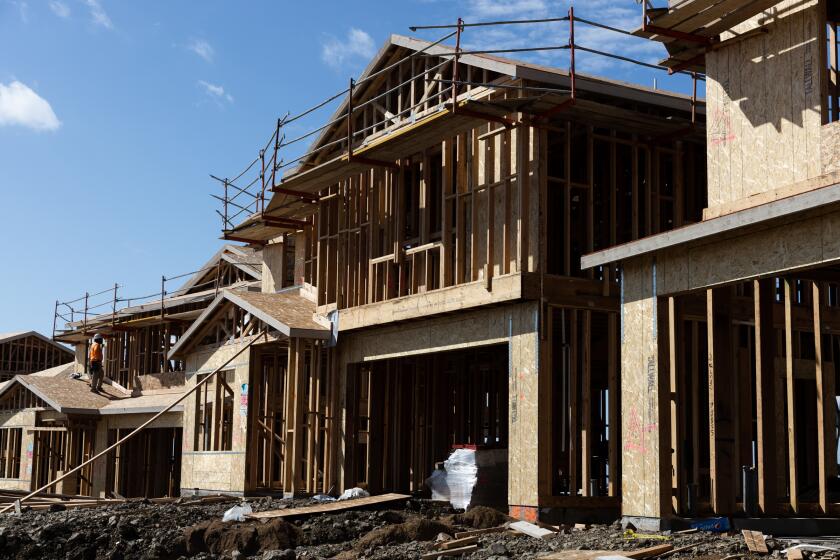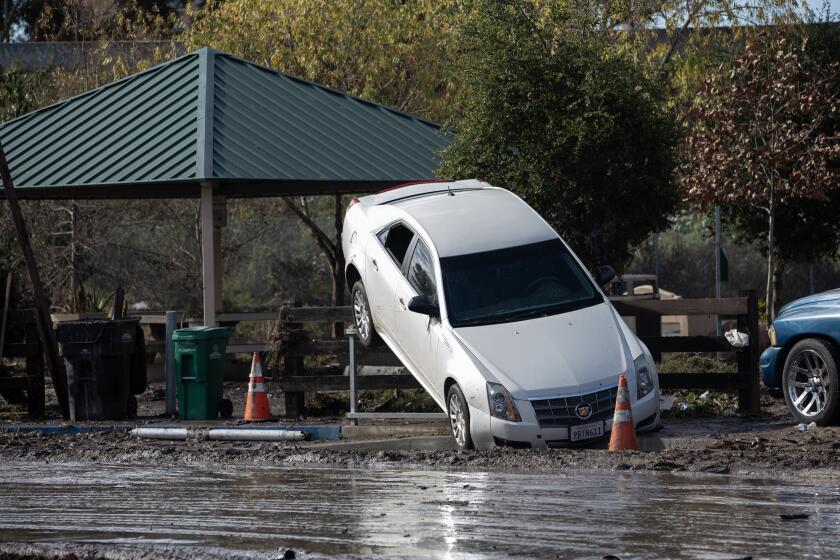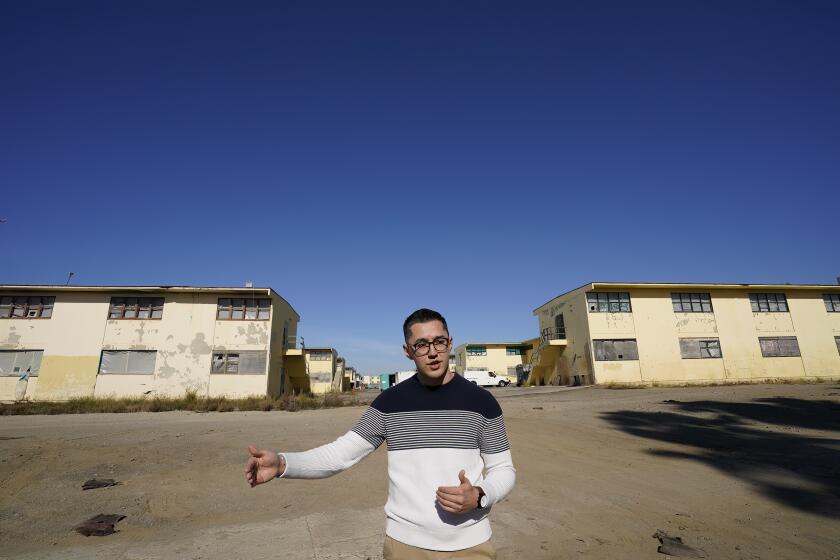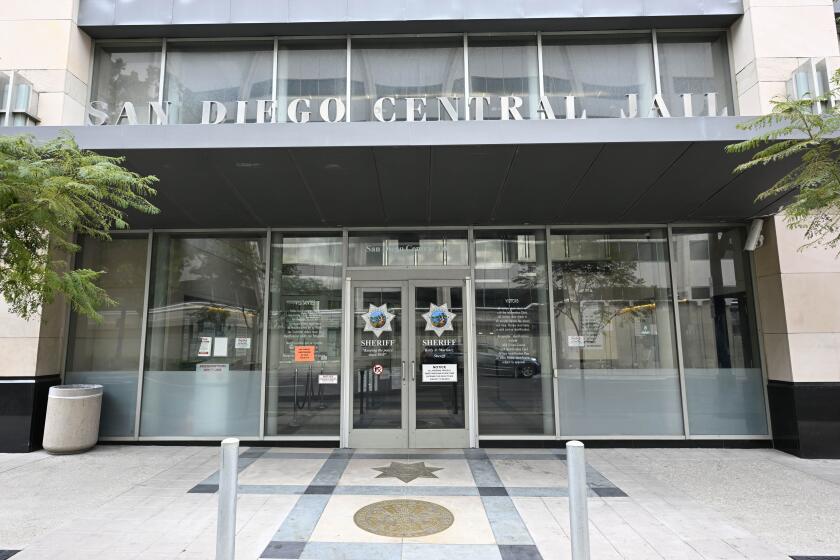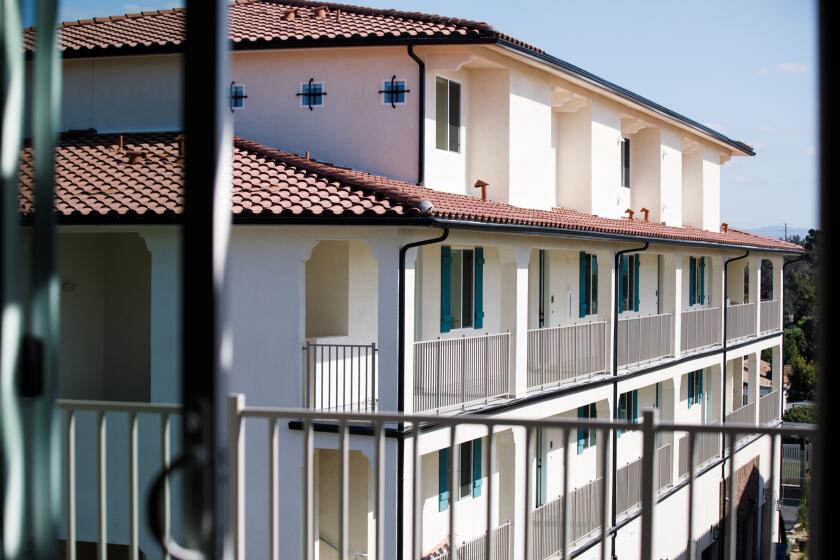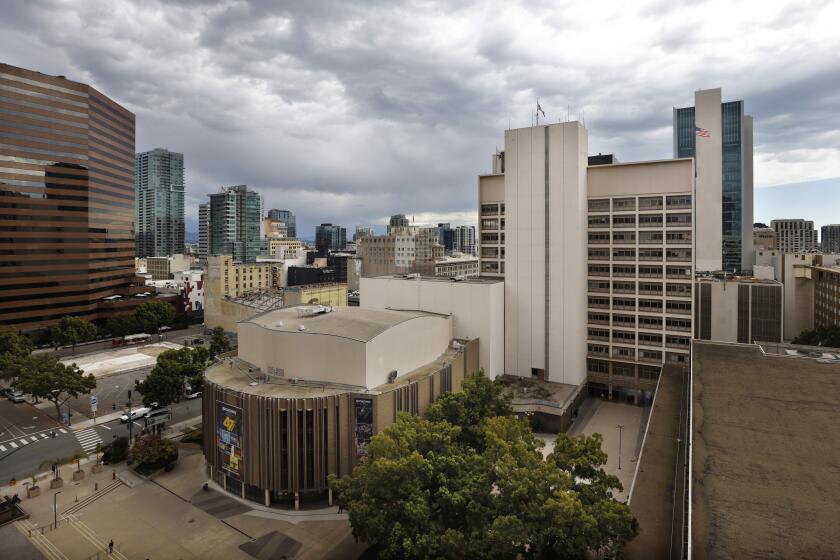Column: Business safeguards soften public reluctance about reopenings
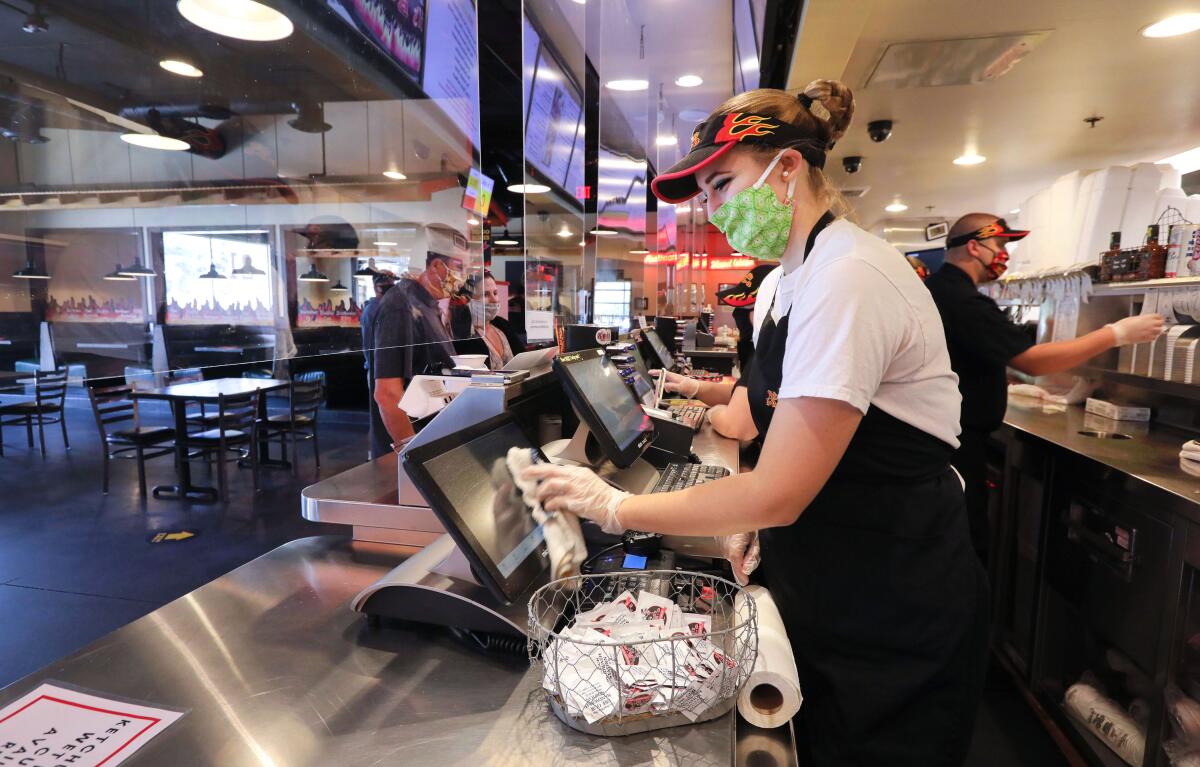
Polls have suggested the public thought it was too early to ease COVID-19 restrictions, but establishing safeguards changes that view
For weeks, the push to further reopen the economy has been met with a big question: Is the public ready?
If the lines outside tribal casinos this week are any indication, the answer may be yes. Granted, the casinos were operating at considerably less than normal capacity to allow for social distancing, but the enthusiastic response to their reopening was unmistakable.
Whether that’s pent-up demand that will subside, or whether other businesses such as restaurants will be greeted similarly when they reopen, remains to be seen.
The county Board of Supervisors and Mayor Kevin Faulconer want to find out sooner rather than later.
San Diego is moving deeper into the second of the state’s four stages for reopening, which allows, among other things, restaurants and retail shops to provide inside service.
A majority of supervisors, supported by the mayor, have further asked Gov. Gavin Newsom to essentially green-light San Diego’s jump to Stage 3. That would pave the way for hair salons, fitness centers and other businesses to open.
Despite the early casino experience and exuberance of many public officials to get things going again, there’s always the risk of moving too fast for the public.
After all, several national polls have concluded that the public is in a cautious mindset about reopening of the economy amid the COVID-19 crisis, perhaps more so than the politicians who want to move more quickly.
What’s often not reflected or emphasized in polls is government insistence on various levels of new protocols aimed at keeping patrons and employees safe. This isn’t about simply going back to business as it was before.
The website FiveThirtyEight, which analyzes polling data, a couple of weeks ago reported that a handful of surveys essentially had the same result — “Most Americans believe it’s too soon to reopen.”
It’s no surprise that when it comes to life-and-death health concerns vs. the economy, strong majorities side with the former.
National pollster and political analyst Scott Rasmussen suggests this is a false choice and the public’s view is more nuanced about reopening and staying safe. The notion of introducing safeguards changes the equation, he said.
First, a poll he conducted nearly two weeks ago showed similar trends as others, Rasmussen noted in his regular column in the Deseret News in Salt Lake City. Twenty-three percent of voters surveyed said government has gone too far in shutting things down. Yet, 71 percent disagreed, with 35 percent saying it hasn’t gone far enough and 36 percent saying it struck the right balance.
“One might conclude that voters remain committed to maintaining the lockdowns,” he wrote. “Indeed, that’s the way much of the media defines the public mood.”
But in that same poll, 60 percent of voters said that every business that establishes safe social-distancing protocols should be allowed to reopen, while 26 percent disagreed.
“Every business!” he emphasized. “Not just a chosen few.”
Rasmussen reiterated a common caution about polls — are they asking the right question?
He didn’t see contradictions in public opinion in this.
“The bottom line is that many voters are ready to end formal, government-imposed, lockdowns,” he concluded. “But they are still demanding a strong societal commitment to social distancing and appropriate health protocols.”
In California, residents appeared ready to move on and reopen, but supported an incremental approach, according to a SurveyUSA poll conducted May 18-20. A strong majority, 77 percent, favored relaxing coronavirus restrictions “gradually, region by region.” Only 17 percent supported reopening all at once.
Fifty-five percent said the stay-at-home orders should be loosened only when targets are met.
Those majorities essentially favor the approach of Newsom, so it’s no surprise he received high marks for how he has responded to the coronavirus crisis.
Nearly 70 percent of Californians said they approved (36 percent) or strongly approved (32 percent) of his performance on this.
They give county health officials across the state an even stronger rating — 46 percent approved and 30 percent strongly approved.
Nationally, a survey commissioned by the Big Cities Health Coalition in April showed four out of five Americans believed stay-at-home orders helped keep them and their communities safer during the pandemic. The coalition also reported that a study estimated 200,000 COVID-19 deaths and 2.1 million hospitalizations were avoided because of stay-at-home policies.
The estimates were calculated by the Urban Health Collaborative at the Drexel University Dornsife Public School of Health using a model published by The New York Times.
In a breakdown of metropolitan regions, the study concluded that in San Diego County coronavirus restrictions saved 13,172 lives and avoided 120,579 hospitalizations over a 45-day period. As of Wednesday, the county reported 230 deaths and 1,155 hospitalizations.
On top of that, there are signs the outbreak has stabilized in San Diego and across much of California. That’s all good news, but the reality is it could have been much better.
A study by Columbia University researchers released this week estimated that 36,000 lives could have been saved in the United States if social-distancing policies had been enacted a week earlier.
And though the trends are positive, people are still becoming gravely ill and dying.
Californians remain wary. Eighty-five percent told SurveyUSA they were still concerned about the coronavirus, with 43 percent “somewhat” and 42 percent “extremely” so.
The extremely concerned group grew to nearly half when asked about a second wave of the outbreak, which health experts say is almost surely to come.
A lot of people may support businesses reopening with additional safeguards, but that doesn’t guarantee they’ll be visiting them in droves.
Get Essential San Diego, weekday mornings
Get top headlines from the Union-Tribune in your inbox weekday mornings, including top news, local, sports, business, entertainment and opinion.
You may occasionally receive promotional content from the San Diego Union-Tribune.

